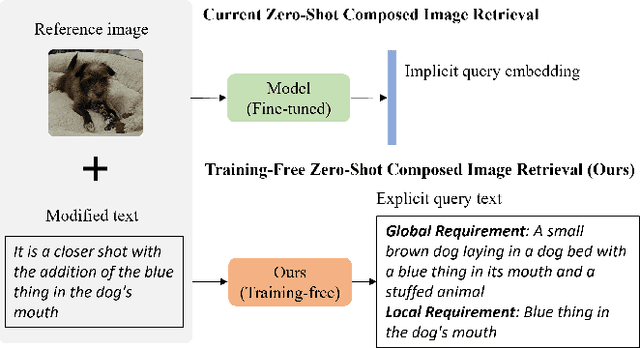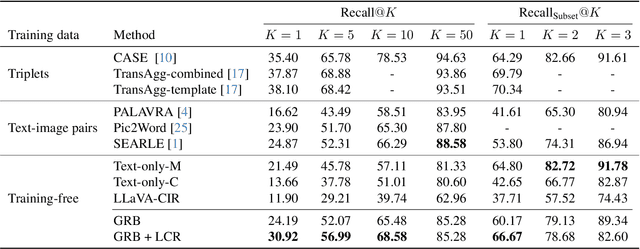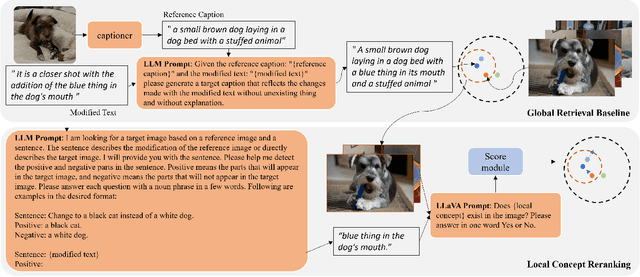Training-free Zero-shot Composed Image Retrieval with Local Concept Reranking
Paper and Code
Dec 14, 2023



Composed image retrieval attempts to retrieve an image of interest from gallery images through a composed query of a reference image and its corresponding modified text. It has recently attracted attention due to the collaboration of information-rich images and concise language to precisely express the requirements of target images. Most of the existing composed image retrieval methods follow a supervised learning paradigm to perform training on a costly triplet dataset composed of a reference image, modified text, and a corresponding target image. To alleviate the demand for difficult-to-obtain labeled triplet data, recent methods have introduced zero-shot composed image retrieval (ZS-CIR), which aims to retrieve the target image without the supervision of human-labeled triplets but instead relies on image-text pairs or self-generated triplets. However, these methods are less computationally efficient due to the requirement of training and also less understandable, assuming that the interaction between image and text is conducted with implicit query embedding. In this work, we present a new Training-Free zero-shot Composed Image Retrieval (TFCIR) method which translates the query into explicit human-understandable text. This helps improve computation efficiency while maintaining the generalization of foundation models. Further, we introduce a Local Concept Reranking (LCR) mechanism to focus on discriminative local information extracted from the modified instruction. Extensive experiments on three ZS-CIR benchmarks show that the proposed approach can achieve comparable performances with state-of-the-art methods and significantly outperforms other training-free methods on the open domain datasets, CIRR and CIRCO, as well as the fashion domain dataset, FashionIQ.
 Add to Chrome
Add to Chrome Add to Firefox
Add to Firefox Add to Edge
Add to Edge